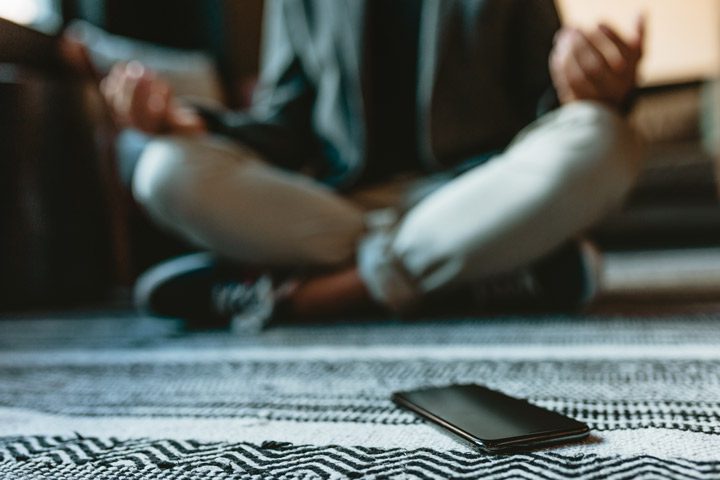
When you experience anxiety, the last thing you want to hear is there’s nothing to be concerned about, or you should just snap out of it. Some people aren’t as familiar with the way anxiety about, well, everything (and nothing, sometimes) can linger just below the surface of daily life.
Anxiety Disorders Are Common
The Anxiety and Depression Association of America (ADAA) states that “anxiety disorders are the most common mental illness in the U.S.” More than 40 million adults—nearly 20 percent of the nation’s population—report having some form of anxiety, but even though it’s treatable, less than half of the people who suffer from it get professional help.
Types of anxiety include:
- General anxiety disorder
- Obsessive-compulsive disorder
- Panic disorder
- Post-Traumatic Stress Disorder (PTSD)
- Social anxiety disorder
- Specific phobias
If you haven’t considered treatment for anxiety before, or are just now realizing you’re not feeling the best but don’t quite understand why, here are some ways to effectively get help and manage your health.
The Difference Between Worrying and Anxiety
Everybody worries, but not all people have anxiety. We usually worry about a specific problem. Anxiety, on the other hand, is more of a vague general state of concern, restlessness, or uneasiness.
Here are some of the key differences between worry and anxiety, according to Psychology Today:
- Worry is often what we’re thinking, whereas anxiety is more what we’re feeling in our bodies.
- Worry doesn’t often affect our personal or professional lives, unlike anxiety, which interferes with the ability to relate to others, function in work or school environments, and even force a change in habits.
- Worry can prompt eventual solutions to the problem, but anxiety is an endless loop without answers.
- Worry might cause slight mental or emotional concern, whereas anxiety can create severe disruptions in mental and emotional health.
- Worries usually don’t last long, especially once we address a problem, but anxiety intensifies and causes someone to feel anxious all the time about various issues.
For these reasons, it’s important to understand how you’re feeling and how to move forward.
Symptoms of Anxiety
Emotional and physical signals speak loudly regarding your actual state of being and shouldn’t be ignored. Yes, you might have stayed up too late one night and feel groggy the next morning—but what if this is how you face each day and don’t know why? Why are you overly-concerned about things that normally you wouldn’t give a second thought?
The Mayo Clinic notes it’s critical to your health to pay close attention to the following symptoms associated with anxiety:
- Feeling “wound up” or restless
- Noticing areas of tension in your body or a tightening in your chest
- Unable to shake sensations of impending danger, doom, or panic
- Rapid breathing or elevated heart rate
- Experiencing increased stress
- Feeling lethargic, weak, or exhausted
- Having trouble with insomnia
- Sweating, trembling, or experiencing digestive issues
- Finding it challenging to focus or stop thinking about worries
- Avoiding any people or activities that prompt these and other uncomfortable symptoms
It’s also possible that your anxiety is related to an underlying health condition that requires a closer medical examination.
Methods for Managing Anxiety
Sometimes, there are ways to develop greater awareness of why you’re feeling anxious and use coping techniques to return to a more calm state. If certain circumstances such as work pressure, family troubles, chronic illness, or external events such as the 2020 COVID-19 pandemic or other issues create an undercurrent of anxiety, utilize some of these resources.
Adapt Daily Care Routines
Consider some of these practices for managing anxiety to help ease your condition in quick moments when you feel some of the symptoms above, or to provide a better foundation for management.
- Breathing exercises to balance your nervous system.
- Progressive muscle relaxation to help reduce body tension.
- Visualization techniques to provide a singular meditative focus.
- The ADAA suggests a few other methods for daily care, such as no caffeine, regular exercise, and a healthy, whole-foods diet.
Support and Community Groups
Sometimes it’s reassuring to know you can talk to someone, perhaps any time day or night, to calm the “monkey mind” and consider all your options. Try these:
- 7 Cups
An online portal offering “caring listeners for free emotional support,” self-help guides, growth paths, and access to affordable online therapeutic services. It also provides listeners for teens ages 13–17. - ADAA’s Online Support Group
This community provides understanding, encouragement, and access to additional education about managing anxiety and depression. - Daily Strength
Founded by WebMD creator Jeff Arnold and Dr. Mehmet Oz—”Dr. Oz” from the “Dr. Oz Show”—this site offers numerous options for anxiety support and coping mechanisms. - National Alliance on Mental Illness (NAMI)
You can find both online and in-person support through NAMI, such as programs and groups offered by the NAMI of Southern Arizona. - Woebot
If you’d like some thoughtful check-ins and love technology, Woebot might be helpful. It utilizes the science of various therapeutic techniques and self-help guidance for improving mental health, managing anxiety, and helping people with substance use disorder.
If your anxiety is ongoing or intense, it’s probably time for professional treatment that includes cognitive behavioral therapy, psychotherapy, medication, or a combination of these solutions.
Proper Mental Health Care at Cottonwood
Many people with anxiety also suffer from depression or co-occurring medical conditions such as eating disorders and substance use disorder, as well as numerous physical illnesses, such as sleep disorders, fibromyalgia, and irritable bowel syndrome. So if you already know anxiety can present challenges, talk to a healthcare professional if it seems you’re experiencing additional issues. It might be time to modify your treatment plan and seek more comprehensive care. If you’ve read this far and think you might have chronic anxiety, maybe we can help.
Wondering how to move forward? Talk to Cottonwood Tucson’s admission professionals about our compassionate anxiety disorder treatment.
If you have suicidal thoughts or behaviors, please contact the National Suicide Prevention Lifeline immediately: 800-273-8255.
Source:
psychologytoday.com/us/blog/the-squeaky-wheel/201603/10-crucial-differences-between-worry-and-anxiety







